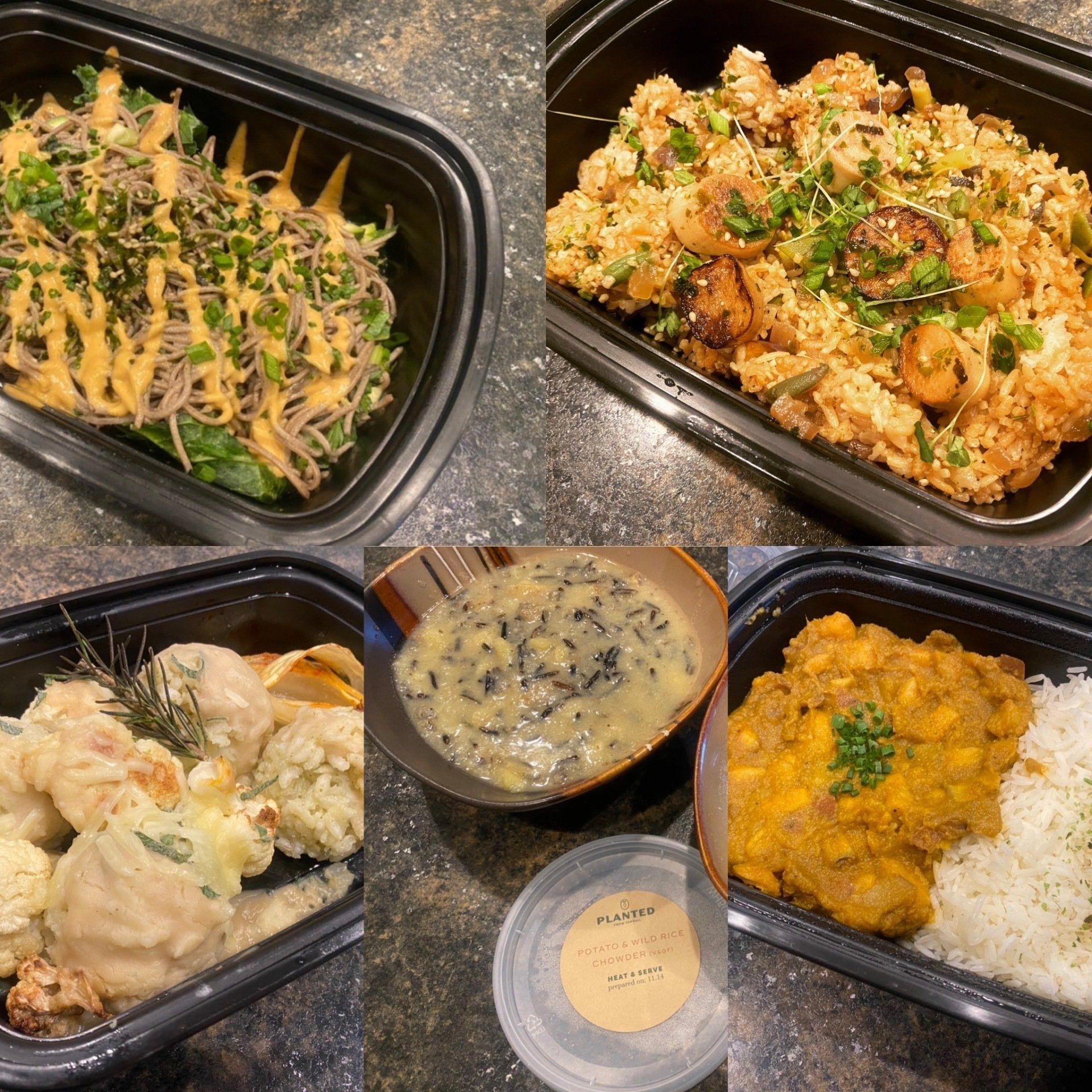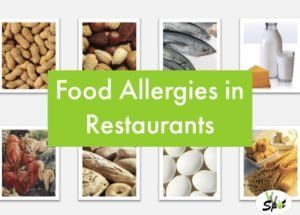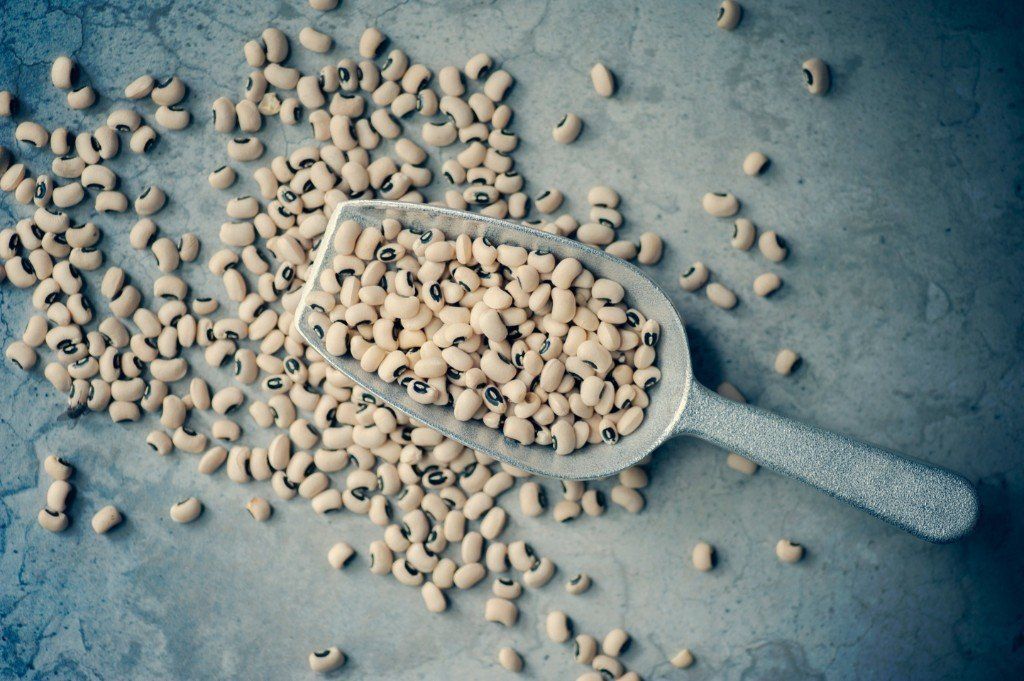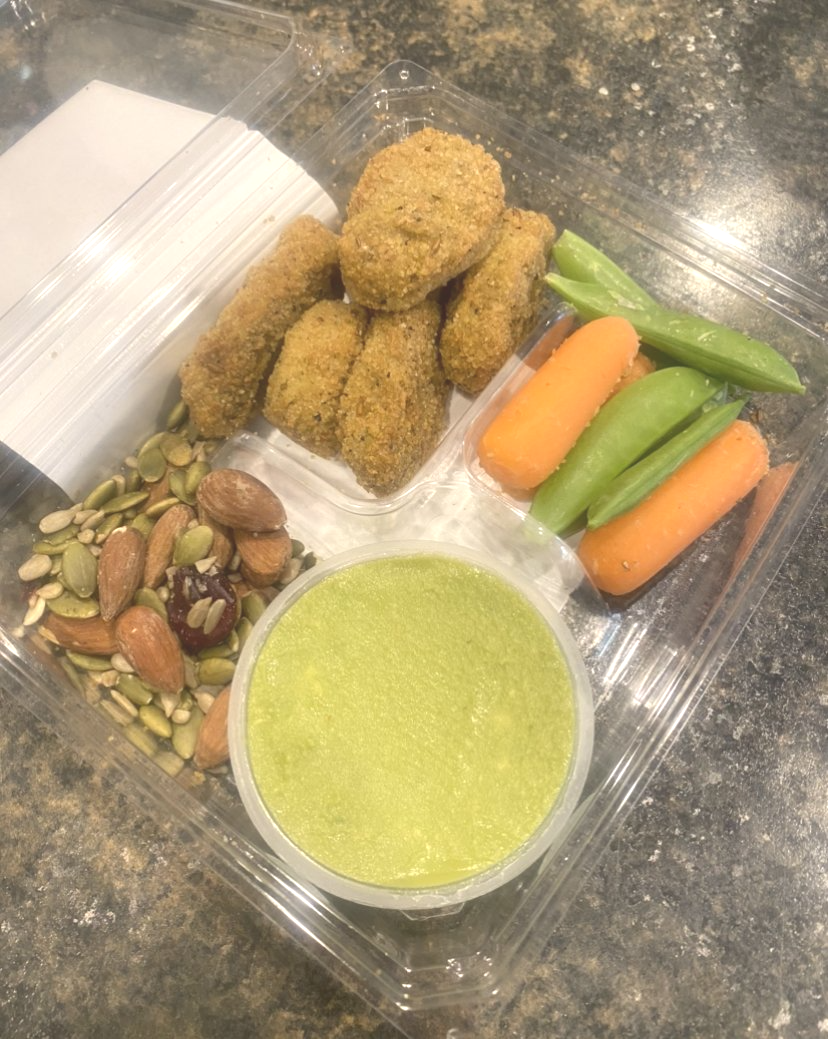Is Soy Safe to Eat?
- By Karen Moss, RDN
- •
- 08 Sep, 2018
- •

We’ve all heard it: soy is good for you! No wait, soy is bad for you! No, wait, it’s good for you, maybe! It’s confusing to figure out the final verdict. But in the world of nutrition rarely is there a final verdict. Research is constantly developing and changing what we know about nutrition and how it impacts the human body. However, in recent decades there have been over 10,000 peer-reviewed journal articles published about soy, or more specifically the isoflavones found in soy. So I read all 10,000 articles to write this blog for you all. Just kidding! I’ll briefly explore the most controversial topics surrounding soy, and as always I’ll post links to reliable sources for you to do more in depth reading if you’re interested.
If you’re vegan or vegetarian (VV), naturally you will come across soy and soy foods. Soy is a fantastic plant-based protein source and is a versatile legume. Let’s have a Forrest Gump and Bubba moment here...you can roast it, boil it, stir-fry it, steam it, there’s tempeh, tofu, soy nuts, soy milk, miso, soy protein isolate...you get my point. Like I mentioned, most of the research for soy is centered around isoflavones. These are plant estrogens, or phytoestrogens, that share a similar structure with the human form of estrogen. That means it can interact with the body’s estrogen receptors and have effects like estrogen or block the effects of estrogen. Let’s explore some of the main controversies that could affect your average adult vegan.
Feminizing Effects
Let’s go ahead and address this one first. If you’re a dude who eats soy, will you grow breasts? Only if you’re eating A LOT of soy. I’m talking 12-20 servings a DAY. And this evidence was from 2 case studies--or in other words only 2 men were studied and they experienced tender and swollen breast tissue, or gynecomastia. That should serve to quell fears and show how unlikely this is. Other concerns regarding negative effects on sperm and fertility have been shown through research to not be an issue. In fact research has shown that regular soy consumption in men has significant risk reduction for prostate cancer.
Cancer
There is a negative perception of soy and breast cancer, especially in regards to estrogen receptor positive breast cancer. However, research shows soy has either a neutral or protective effect against breast cancer. In fact, young girls who eat soy regularly have a lower lifetime risk of developing breast cancer. In general, the studies are using about 2 servings a day or less.
There is also evidence to support soy’s protective effects against colon and prostate cancer.
Thyroid
The research to date has shown soy products do not cause hypothyroidism in healthy adults. However, one 2011 study did show a faster progression to overt hypothyroidism in adults who already had subclinical hypothyroidism when consuming 16 mg of isoflavones from soy protein, an amount that would be typical of a vegetarian. Therefore for these individuals, it would be wise to avoid soy or greatly limit intake. For those who already have hypothyroidism and are taking thyroid medication, soy foods can affect absorption of the medication. It is advised to separate taking your medication by 1-3 hours before eating. Otherwise, it is safe for you to eat soy foods. Drastically changing the amount of soy foods you eat could affect the dosage needed for your medication. Check in with your doctor or pharmacist for questions regarding your thyroid medication and interactions.
Soy isoflavones can use up iodine that is needed to make thyroid hormone. Because of this, those who do not consume enough iodine can experience a negative impact on thyroid health from eating soy. For most Americans, about 50% of iodine consumption comes from dairy products. Therefore vegans in particular need to be aware of their iodine consumption to ensure adequate intake and prevent deficiency. Using iodized salt and eating foods such as seaweed contribute to iodine consumption.
Mineral absorption
Like other beans and whole grains, soy contains phytates and oxalates that can affect mineral absorption. The main concerns are around iron, calcium, and zinc. Iron was long believed to be poorly absorbed from soy, but thanks to new research techniques we now know that iron absorption is quite good from soy. Vegetarian women who eat 2-3 servings of soy daily have comparative iron status to women who consume meat. Calcium bioavailability in soy is also better than once thought. Absorption of calcium from soy milk fortified with calcium carbonate was nearly the same as from cow’s milk. Zinc absorption rate is about 25% less than from animal foods. However, soy is not a very good source of zinc to begin with.
GMO (genetically modified) Soy
GMO soy has been around for decades. As of yet there are no science-based links to adverse health effects, but many are concerned over potential health effects and ethical and environmental impacts. If it’s important to you to avoid it, buy products that are labeled USDA certified organic (organic foods cannot be genetically modified) or look for the non-gmo project label.
Bottom Line
Soy provides more protein than other legumes. For example ½ cup of edamame has about 11g protein while 1/2 c of black beans has about 7.5 g protein. The isoflavones found in soy have proven beneficial health effects. As long as you’re not allergic, there’s no need to avoid it completely. As with all foods, it’s best to stick with less processed versions: tempeh, soy nuts, edamame,etc. They retain the fiber, fatty acids, and isoflavones that make soy beneficial. Tofu made with calcium sulfate and soy milk fortified with calcium and vitamin D make for a nutrient rich source of calcium in the vegan diet. Fermented forms of soy are great (miso, natto, tempeh), but not necessarily superior to non fermented. Highly processed soy or isolated soy protein products can be high in sodium, but it just depends on the product. As with other foods, look for short and simple ingredient lists. All things in moderation--for example, it’s ok to eat a processed soy burger if it helps you achieve your goal of avoiding a hamburger! It can be surmised from the research that 2-4 servings a day of soy would be beneficial. But keep in mind that there can be too much of a good thing and it would be prudent to keep this recommendation from Mark and Virginia Messina in mind: “Nevertheless, because an important dietetic principle is to consume all foods in moderation, and there is a wide variety of legumes from which to choose, a reasonable upper intake recommendation for soyfoods is four servings per day.”
What has your experience been with soy? We’d love to hear from you!
Sources:
Messina M, Messina V. The Role of Soy in Vegetarian Diets. Nutrients. 2010;2(8):855-888. doi:10.3390/nu2080855.
https://www.fertstert.org/article/S0015-0282(10)00368-7/fulltext
Safety of Soy Foods
https://vegetariannutrition.net/docs/Soy-Safety.pdf
Soy and Your Health
https://www.pcrm.org/health/health-topics/soy-and-your-health
Soy

Topsoil Kitchen and Market, located in downtown Travelers Rest, SC is a farm to table restaurant featuring a James Beard Foundation Semifinalist Chef, that has some of the best offerings you can find in the Upstate. They host various events including Supper Club and festivities, offer Whole Foods Plant Based options and provide the opportunity to purchase fresh groceries!
We recently had the opportunity to taste some of Topsoil’s “Planted” options and we were truly impressed! Their Planted Meal Plan, which is a weekly ready to eat meal kit, offers award winning chef-made 100% locally sourced and absolutely delicious meals. Each kit includes five meals, that are freshly prepared with flavor and nutrition in mind for only $75!
First, we have a delectable Soba Salad consisting of peanut sauce, ginger, scallion, and furikake. This picturesque dish had a delicious peanut and gingery taste; offering a protein packed dish that requires no heating! Next, is one of our favorites, the Fried Jasmine Rice with King Trumpet Mushrooms. This dish was bursting with flavor in every bite and the mushrooms provided a meaty texture that will please any palate. Third, is the Truffled Cauliflower Risotto; a dish topped with lightly sprinkled vegan cheese. This savory dish would satisfy any type of eater. Next, is the Potato and Wild Rice Chowder. This soup will comfort you on a chilly day, providing a savory taste with great texture to give you enough fiber to keep you full. Lastly, we have the Sweet Potato Green Curry. This curry dish was delicious from start to finish. It could satisfy any palate, which had enough spice to provide the necessary flavor, but not too much for those who can’t handle the heat. Each dish was amazing and easy to heat and serve. Most serving sizes of the meals can actually feed two people; however, Topsoil Kitchen & Market recognizes that most individuals would only be satisfied if they had each dish for themselves.
In addition to providing delicious cuisine, health is a factor in almost all of the dishes. A Plant Based Whole Foods (PBWF) diet is a lifestyle in which one eats minimally processed foods including: fresh fruits, vegetables, legumes, and grains. Topsoil Kitchen & Market meets the needs of individuals aiming to sustain a healthy diet including PBWF. The Planted Meal Plans change each week since the food is locally grown. These dishes are straight farm to kitchen from their trusted farmers and Topsoil’s very own farm. This is delicious food you can trust (especially during the pandemic). When you look at the nutritional aspect, you are most definitely getting the necessary nutrients to sustain a healthy lifestyle. For more information about Topsoil Kitchen and Market and their Planted Meal Plans menu, please visit https://www.topsoilrestaurant.com/.

Netflix, Hulu, and Disney + are just a few of the apps that have us glued to our seats and beds while in quarantine. It is hard to get out and go exercise when you can binge watch your favorite shows. Additionally, with the rainy season, it’s tough to go outside and exercise if you don’t have a gym membership. We want to give you some tips on how you can exercise or stay active while in your room or living room.
-
Pick a setting and exercise. Do your favorite exercise (i.e. 10 jumping jacks, 10 burpees, 20 sit-ups, etc.) everytime the show you are watching has a scene in a certain setting (i.e. an office setting or an outside setting, etc.).
-
Make some moves during commercials. If you are using Hulu, live TV or another app that has commercials, do an exercise when the commercials come on.
-
Sit and burn calories at the same time. If you want to sit while you exercise. Click here to learn what you can do with some dumbbells and/or can goods.
-
Move-it with board games. If you like board games add exercises to it, similar to the above commercial breaks. Do an exercise directly after your turn until it comes back to you. Make it unique and add your own twist to various board games to make them more physically active.
Just remember, a healthy body incorporates 80% healthy eating and 20% active living. It is easy to overdo it with physical activity. Drink plenty of water, take breaks and most of all, HAVE FUN!



How do you get enough protein?!
Does that sound like a familiar question as a vegetarian/vegan (VV)? Or is it a question you asked yourself when transitioning to this lifestyle? Turns out it’s not as difficult as one might think. In fact, VV eating patterns provide enough, often more than enough, protein when total calorie intake is sufficient.
Complete vs Incomplete Protein Myth:
Protein is a macronutrient that plays numerous roles in the body. It’s a main structural component of muscle, skin, blood, etc. and much, much more. Protein is made up of building blocks called amino acids. Our body can make some amino acids on its own, but others are considered ‘essential,’ meaning the only way to get them is to eat them. That’s where the terms ‘complete’ and ‘incomplete’ protein come in to play. Complete proteins are foods that have all the amino acids the body needs (like meats) and incomplete proteins only have some of the amino acids (like beans). From this came the idea that a person would need to combine incomplete protein foods to create a complete, or complementary, protein. For example, eating rice and beans together. However, we now know that the body can pool the amino acids in the liver and use them as needed to create complete proteins, therefore there is no need to combine proteins specifically at each meal. So all of that to say….don’t sweat trying to create ‘complete’ proteins in your VV diet! Odds are you will eat enough of all the amino acids throughout your day. For funsies though, it is cool to know that there are a few plant-based ‘complete’ proteins like soy and quinoa!
How much do I need?
The Recommended Daily Allowance (RDA) for protein is based on an average adult needing 0.8g protein/kg body weight. This comes out to 46g of protein a day for an adult female and 56g of protein a day for an adult male, on average. You can see this chart here. Of course, this will vary throughout the lifecycle and children, adolescents, elderly, pregnant or lactating women, and athletes will have higher needs.
If you’re vegetarian, these RDAs apply to you too since protein from eggs and dairy are easily digested. Vegan sources of protein aren’t quite as easy to digest and therefore vegans may benefit from upping their protein needs to 1.0 g protein/kg body weight and even slightly higher for older individuals.
If you’re unsure if you’re meeting this threshold of protein needs one way to check yourself is to log a few days of your typical eating pattern in a food diary like My Fitness Pal or Super Tracker. And as always, if you have more in-depth questions it is wise to consult with a Registered Dietitian Nutritionist.
Lysine, a special consideration in the vegan diet:
Lysine, one of those essential amino acids we mentioned earlier, is considered the limiting amino acid in the vegan diet. If you’re eating a varied vegan diet you’re likely doing ok. But it’s worth making sure you always include legumes such as beans, peanuts, and soy in the diet to make sure you are getting enough of the essential amino acid lysine. Vegan experts recommend at least 3 servings a day of legumes. To learn more about this and see serving sizes, click here to read information put together by Jack Norris, a Registered Dietitian with a great website about veganism or visit JackNorrisRD.com
Super cool fun fact about environmental impact:
“To produce 1 kg protein from kidney beans requires 18 times less land, 10 times less water, 9 time less fuel, 12 times less fertilizer, and 10 times less pesticide in comparison to producing 1 kg protein from beef.”- -Position of the Academy of Nutrition and Dietetics: Vegetarian Diets
Amazing, right?!
Enough already, just tell me what to eat!:
In a nutshell (pun intended), nuts, seeds, beans, peas, soy, and whole grains are great sources of plant-based protein. But let’s not reinvent the wheel! Here are some links to trustworthy resources to see protein sources in the VV diet:
Thanks for reading! What nutrition topics would you like to hear about next?
Sources:
-
Position of the Academy of Nutrition and Dietetics: Vegetarian Diets. Melina, VesantoCraig, WinstonLevin, Susan et al. Journal of the Academy of Nutrition and Dietetics , Volume 116 , Issue 12 , 1970 – 1980.




